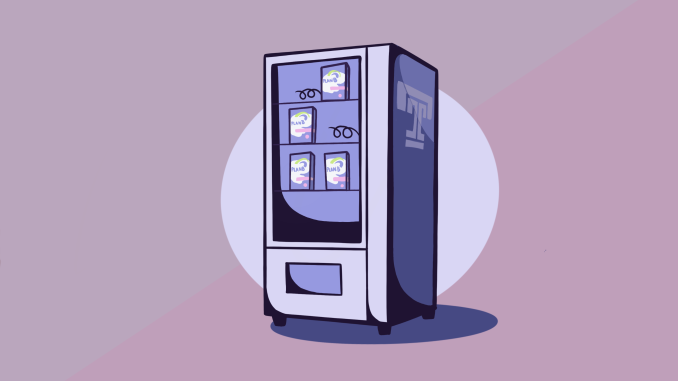
Last June, the United States Supreme Court overturned the 1973 Roe v. Wade decision, effectively removing the constitutional right to abortion. Following the reversal, Google searches for the “morning after pill” spiked, according to a July 2022 National Library of Medicine study.
On Nov. 18, a group of anti-abortion organizations filed a lawsuit in the U.S. District Court for the Northern District of Texas in Amarillo that could ban abortion pills nationwide, POLITICO reported.
Last month, George Washington University installed a vending machine where students can discreetly purchase emergency contraception for $25, roughly half the price it would be from a drug store, The Guardian reported. Other universities, like Shippensburg, Stanford, Columbia and Boston University, have installed these vending machines, with Boston selling it for only $7.25.
In the aftermath of the Roe reversal, Temple University should install at least one discreet Plan B vending machine on the lower level of the Howard Gittis Student Center and, eventually in student housing to help prevent pregnancy at a lower cost without social interactions. They should include women’s health and safer sex items, like condoms, ibuprofen and tampons, and a resource pamphlet from Wellness Resource Center or Student Health Services.
At both the CVS, located at 12th Street and Cecil B. Moore Avenue, and the Rite Aid, located on Cecil B. Moore near Broad Street, customers need to ask employees for assistance to access emergency contraception. At the SHS dispensary, students need to ask for the pill.
Obtaining emergency contraception often involves awkward interactions in stores, and can prevent students from purchasing it. Only 11 percent of women feel confident buying the morning-after pill, according to a March 2019 survey by ellaOne, an emergency contraceptive brand.
“There is an element of judgment that exists when people purchase reproductive health products in person,” said Sandra Sepulveda-Kozakowski, a psychology and neuroscience professor.
A Plan B vending machine in a low-traffic corner of the Student Center and in student housing would offer a more discreet way to easily pick up contraceptives while avoiding potentially shameful interactions.
Chelsea Lubbe, a freshman journalism major, would definitely use a Plan B vending machine if she needed it, she said.
“I definitely believe that there are a lot of people who would find it extremely like a weight lifted off their shoulders,” Lubbe said.
In Pennsylvania, there are no explicit restrictions on the sale of over-the-counter products in vending machines, according to the Policy Surveillance Program. Temple can sell the morning-after pill in vending machines as long as they adhere to applicable laws, like vending machine authorizations.
“Any decision to offer Plan B in vending machines would need to involve the Family Planning Counsel,” wrote Mark Denys, the senior director of health services, in an email to The Temple News. “At this time we have not had those discussions.”
AccessMatters, previously known as the Family Planning Counsel, offers family planning services at Temple, like pregnancy prevention, STI treatment and counseling, for free or at a typically low cost to those who qualify, according to SHS.
Temple students can currently access emergency contraception through SHS on a sliding scale cost of $0 to $13 or purchase it at a drug store around campus.
Drug stores like CVS, sell Plan B One-Step for nearly $50. Generic brands of the pill can cost between $11 and $45, according to Planned Parenthood.
Current inflation rates in the U.S. are at 6.4 percent, with food rates at 10.1 percent, according to the Bureau of Labor Statistics. With the cost of basic needs increased, pregnancy prevention may not be a priority.
High costs may discourage students from purchasing contraceptives when they need it because they’re already struggling to afford other needs, Sepulveda-Kozakowski said.
“It’s difficult when there have to be choices around which bills to pay and how to prioritize those things,” she said.
The sexual double standard, which shames women and praises men for having sex, can make students feel embarrassed interacting with others to obtain the pill. A vending machine would add the essential benefit of discreteness because students would avoid speaking with anyone when obtaining the morning-after pill.
Additionally, each purchase should come with a pamphlet describing where to access safer sex resources and sexual health education on campus. Keeping students informed contributes to reducing discomfort surrounding sexual health.
While women’s health care is facing nationwide restrictions, Plan B vending machines would offer Temple students the privacy and affordable access to emergency contraception they need.
Valeria Uribe contributed reporting.



Be the first to comment